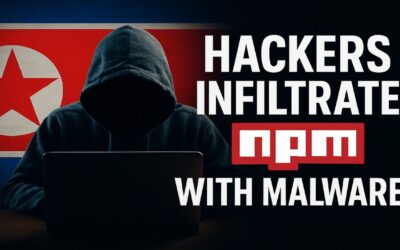At first glance, hiring a hacker to secure your information systems might seem counterintuitive, even risky. After all, trusting someone who knows exactly how to infiltrate your network can feel like asking the fox to guard the henhouse. But this very expertise in breaching systems is precisely what can make hackers incredibly effective information security (InfoSec) professionals.

Hackers Think in Terms of Breaking Things
One of the most noticeable contrasts between traditional InfoSec personnel and hackers is mindset. Conventional security engineers often concentrate on configuring systems to function as intended—firewalls, intrusion detection systems, and so on. Hackers, however, are naturally inclined to think about how those systems can be broken.
This mindset requires a profound understanding of systems, extending far beyond surface-level configuration. Hackers often grasp the inner workings of devices and software at a foundational level, and this knowledge is critical for building stronger, more resilient defenses.
Creativity is a Hacker’s Edge
Effective hacking requires inventive thinking. There is rarely a step-by-step guide for discovering system flaws; hackers need to explore, experiment, and think unconventionally to uncover and exploit vulnerabilities. Many InfoSec professionals, especially those from formal academic backgrounds, are rarely exposed to this kind of out-of-the-box problem-solving.
Persistence Pays Off
Hacking isn’t a one-shot endeavor. It often involves trial and error—moving from Plan A to Plan B and beyond. This persistent, determined approach becomes an asset in cybersecurity, where defending systems requires anticipating and responding to countless angles of attack. Hackers naturally develop this tenacity through their constant problem-solving.
Problem Solving is Second Nature
Hackers thrive on overcoming complex technical challenges. Securing access to protected systems or bypassing hardened defenses isn’t easy, it requires top-tier analytical thinking. These problem-solving capabilities, when redirected toward defense, are extremely valuable in the ever-evolving threat landscape.
Hands-On Learning Over Formal Education
Many hackers hone their craft through hands-on experimentation rather than formal schooling. Driven by a genuine passion for computers and systems, they often start young and build deep, practical experience over many years. It’s not uncommon for a 25-year-old hacker to have a decade or more of real-world knowledge that outpaces some InfoSec professionals with traditional education.
Scripting Know-How is Standard
Basic scripting can make a significant difference in security operations, streamlining tasks and improving efficiency. Most seasoned hackers are well-versed in scripting languages like Python, Perl, or BASH, using them to create tools and automate exploitation tasks. Surprisingly, many InfoSec professionals lack even this essential skillset, which hackers typically consider second nature.
Finding the Right Hacker
Hiring a capable hacker can be more challenging than expected. While top-tier hackers are well-known (and expensive), identifying qualified candidates at the entry or mid-level is harder, especially for managers unfamiliar with hacking culture.
Certifications can help, but not all are created equal. The Certified Ethical Hacker (CEH) credential is widely recognized but often criticized for being overly theoretical, requiring no hands-on exploitation or Linux skills. As a result, many CEH holders know the concepts of hacking but lack practical capabilities. More rigorous and respected certifications include the GPEN (GIAC Penetration Tester) and OSCP (Offensive Security Certified Professional), both of which require real technical ability.
At Ouroboros Security, we offer hacking services, connecting verified, skilled hackers with organizations worldwide.
If you can identify the right hacker and channel their expertise into your defensive strategy, you’ll likely gain a formidable asset in protecting your digital infrastructure.





0 Comments